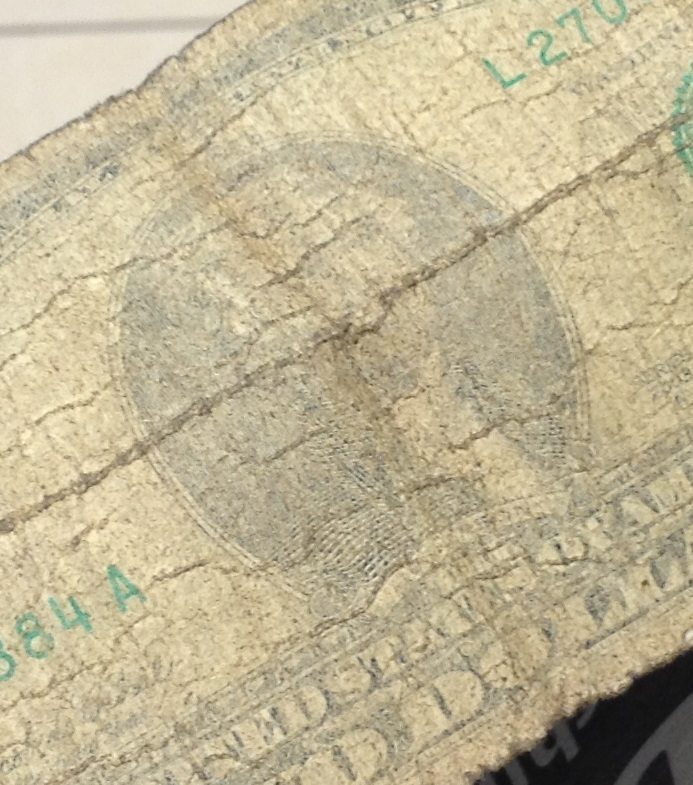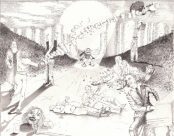[dropcap style=”font-size:100px;color:#992211;”]R[/dropcap]yan Kunkel has a problem, and it’s one that many others like him are facing now that two American states have legalized the sale of marijuana within their borders: he has nowhere to stash the money.
That’s because while state laws on the sale and possession of marijuana have changed, the institutions that support this now-legal trade have not. A patchwork of state and federal laws, superseded by the 1970 Controlled Substances Act still classify marijuana as a Schedule I drug, equivalent to much harder diversions like heroin, LSD, and ecstasy.
The classification means that banks, at the state, federal, and multinational level, are refusing to accept the proceeds of a booming new industry, fearing accusations of money laundering under now anachronistic federal laws.
The irony, of course, comes from the fact that for years, many of America’s biggest banks have had no qualms about laundering money for international drug cartels. Over the summer, HSBC agreed to a record-breaking $1.9 billion agreement with the US Justice Department on a deferred prosecution agreement. Essentially, the bank avoided a trial in return for five weeks’ income and a solemn promise for reform.
[quote] What they refuse with
one hand, they graciously
accept with the other… [/quote]
The key aspect of this is that the federal prosecutor chose not to indict HSBC, for fear that laundering money from known drug cartels might destabilize the financial system. Banks have already proven that the government is unwilling to prosecute, even if the offending party is willfully aiding and abetting murderers and terrorists.
The Feds Fold
Why then, should banks fear dealing with legal businesses inside the United States? It can’t be because accepting drug money (quite literally) in the open would go too far.
One of the most startling aspects of the HSBC case was the sheer brazenness of illegality. Mexican drug cartels often deposited hundreds of thousands of dollars, in cash, to HSBC branches using boxes specially designed to fit bricks of cash through teller windows.
This failed to trigger the necessary alarms in part because HSBC cut their due diligence and anti-money laundering teams to reduce costs and increase profits, and they are hardly the first. In 2011, Bank of America was hit with big fines after it was discovered that they too had laundered millions for known Mexican drug cartels. Wachovia (now part of Wells Fargo), JPMorgan, and Citigroup have all failed to comply with American anti-money laundering laws as well.
A more pressing issue is that in our globalized world, the tentacles of finance have stretched to cover nearly everything, and many of the same paths worn by the drug cartels are also traversed by terrorists, gun runners, people traffickers, tin pot dictators, and brass-balled con artists. HSBC’s American arm, for example, was shown to have transferred over one billion dollars to Saudi bank Al Rahji, which then funded known terrorist groups including al Qaeda.
Disturbingly, the FBI has recently changed its ‘primary function’ from law enforcement to counter-terror. While the language change may only reflect long-running, post-9/11 policy, it is a dangerous semantic shift. The United States’ counterterrorism policy fails, in part, by failing to enforce its own laws, especially laws related to money laundering and financial crimes.
Tracking Transit
It’s that old line of William Goldman’s that’s become a staple of investigative journalism – “Follow the money.” If we are to understand where and how terrorism arises, it is integral to know how it is financed, not only where terror groups source funds but also how they move money among various operations.
That is a course of study that several non-governmental organizations such as Global Witness, the Revenue Watch Institute, and the Open Society Foundations have been pursuing for over a decade. In the years following Sierra Leone’s civil war, many human rights campaigners fought to prevent the use of commodities to fund rebel movements, the infamous ‘blood diamonds’ being the most obvious example.
However, after ten years, it’s become increasingly clear that the diamond certification scheme doesn’t work. Documents may be forged, rampant smuggling still occurs, and once a diamond has been cut and polished, there’s no way to tell if it came from the sophisticated, professional operations in South Africa or from a muddy, army-controlled pit in Zimbabwe.
The key is the middle man – the diamond dealer who buys what comes in, puts it in the bag, and sends it off to Dubai or India. This is essentially the role that bankers play in the financial system. In the case of the Mexican drug cartels, once the money has entered HSBC’s system, it becomes nothing more than zeroes and ones bouncing around the company ledgers, indistinguishable from your granny’s cookie fund.
With the FBI shift from law enforcement to counter-terror, they have drastically reduced the number of agents actively investigating white-collar crimes including fraud, embezzlement, and money laundering. Between 2001 and 2009, the FBI doubled the agents involved in counter-terror and steadily shifted their focus away from national investigations. Their credibility thus took a serious hit when they failed to detect and prevent the bombings at the Boston marathon earlier this year.
The Taxman Cometh
It’s no secret that Al Capone is one of the most infamous figures in the history of organized crime.
[quote] The government is
unwilling to prosecute,
even if the offending party
is willfully aiding and
abetting murderers and
terrorists. [/quote]
At his peak, the gangster controlled nearly all of Chicago’s gambling, liquor, prostitution, and enforcement rackets and covered his tracks through high-level conspirators in the police and city hall. Despite his brutality, it wasn’t the murder or the theft that eventually brought him down. It was his taxes. The FBI spent years combing through his paper trail looking for any slips before they finally managed to pin him down.
The Central American cartels have similar profiles to that storied American gangster. They have steadily eroded the institutions and security of multiple states in the region and have become a brutal law unto themselves in certain areas. Nearly five hundred beheadings took place in Mexico in 2011, more than any other country in the world, all of them related to drug violence.
Compare that to the mindblowing number of decapitations in Colorado and Washington since marijuana was made legal. As far as this author is aware, there have been exactly zero.
One begins to wonder, then, at the major international banks’ sudden skittishness dealing with the proceeds of legal marijuana distributors in the United States. What they refuse with one hand, they graciously accept with the other, and with nearly no oversight and little punishment for their actions, there is little to indicate that this will change anytime soon.
Sterling Carter writes on the intersection of political economy, arts and culture, and human rights. He has over five years’ experience on African development, violence and conflict with organizations including Human Rights Watch, Global Witness, and Search for Common Ground. He is originally from Flora, Indiana but pulled up stakes long ago.





















